My journey as a champion for John Keells Foundation’s vision project
By Anil Bandara
During school days we have more opportunities to take part in volunteer or social work as through various clubs and associations in school when we take on projects to help the needy. When I started working, I didn’t immediately get the opportunity to take on volunteer work. When I started working at John Keells in 15th January 1991 there was no formal Corporate Social Responsibility (CSR) team or department in The Group, but when the John Keells Social Responsibility Foundation was being set up, and they needed committee members from different sectors to come together. It was a long time ago, and I can’t specifically recall, but I believe the sector heads were requested to nominate committee members for the Foundation Management Committee (FMC) and my boss Romesh David nominated me.
The FMC came together, in a time that Corporates in Sri Lanka didn’t participate in sustainable CSR but was known to donate money for one off projects rather than long term projects, and so we had our work cut out for us. The founder member of the FMC didn’t have a clear understanding of how we could commence sustainable CSR activities and so we all participated in relevant seminars and read research documents and publications to educate ourselves and we put together a structure, which was fine-tuned as the years went by and we gained hands on experience.
When the John Keells Social Responsibility Foundation commenced we had far fewer projects than we do now, and The Vision Project was one of the first and I was given the opportunity to Champion it. The area was completely new to me and meeting medical professionals such as eye surgeons to learn about cataract and discuss the latest, safe and practical procedures to cure them and was totally outside my daily work routine and I was in unfamiliar territory. But at John Keells we are moulded to take on new challenges and to step out of our comfort and so I took on the task fearlessly. We had a good team at the FMC and we enjoyed it as a learning experience rather than the fear of what if this new project fails.
If I look at the project from when we first started and where it is today, I’m proud that it has progressed so well. When we started, the Sri Lanka Government’s Vision 2020 programme was not initiated and it was tough getting the medical community together to volunteer their time to CSR work. I consider it a great fortune to have met and bring on board the JKF Vision Project inspiring medical professionals such as Dr. Iddawela who supported and motivated us from the commencement of the project and was actively involved as the chief surgeon in many of our eye camps. Today with the Vision 2020 Steering Committee in place, there are many other surgeons who participate in our eye camps, some of them as volunteers and as at January 2015 since the commencement of the project in 2004, we have done many eye camps and completed 7754 cataract surgeries and have given away 2251 spectacles.
When we started, little was known in the rural communities about cataract and as they have limited access to medical care, they were not educated that blindness due to cataract could be cured. Surgeons such as Dr. Iddawela took the time to explain and educate them that it was a simple procedure and it was importantly as elderly persons who are the victims of cataract disease tend to be more fearful about illness and surgery.
Also, unlike when we first started, there is a more structured process on engaging staff volunteers and we have a good network. We have also built a team of multi lingual volunteers and they are an asset when we conduct eye camps in the North and East and they are able to speak in Tamil to assist the surgeons who don’t. It is encouraging to see that a staff member who has volunteered for an eye camp often is a repeat volunteer at eye camps at a later date.
I feel that what keeps me motivated the Project Champion as the results of what we do is immediate and the response from the beneficiaries gives me great happiness. The vision project reaches out to the rural communities in the Island where people live in poverty and some of them have lost their homes and families during the war. It is a rewarding experience to make their lives better. I recall an instance where a patient blind in both eyes came to one of our early eye camps assisted by 2 people but 10 days later, he came for a follow up visit and he had made the journey alone, by bus.
This volunteer experience has certainly made my life richer as not only does it gives me the opportunity to help others regain something as important as their eyesight, but also it makes me feel grateful and blessed with the life and comforts that I enjoy today and complain less about my problems, which is why I encourage other staff members to also volunteer for Eye Camps.
Could you imagine, progressively losing your sight and one day not be able to see at all, where you will no longer be able to do anything you could do before unassisted? As the onset of cataract happens at an elderly age where you are less adaptable to change your life will completely change. In a situation like that, to be able to fix this, to bring their lives back to normalcy to be a part of giving someone their sight back is a feeling beyond compare.

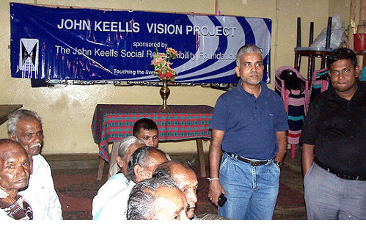



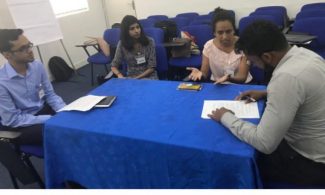
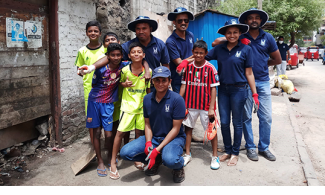
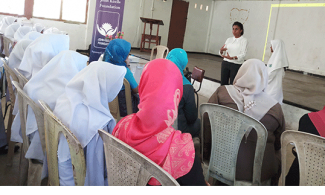
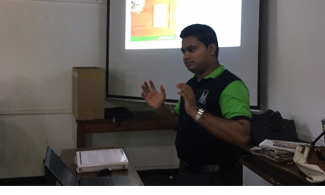
Leave comment